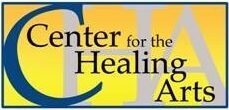The thyroid gland, a small butterfly shaped gland at the base of the neck, produces thyroid hormone, which control the metabolic rate. The metabolic rate is the rate which the body turns food into energy. It acts like the “thermostat” of the body, regulating temperature as well. If not enough thyroid hormone is produced or it if is not utilized properly, energy and heat production is lowered, affecting every cell in the body. Therefore, symptoms of low thyroid (hypothyroidism) are many and variable, including cold intolerance, cold hands and feet, fatigue, muscle weakness, constipation, weight gain (or loss), lowered immunity (frequent infections), dry skin, “chicken skin”, hair loss, headaches, and many others.
In the diagnosis and treatment of hypothyroidism, three aspects must be addressed: anatomy, function, and prognosis. Palpation and ultrasound are useful methods of assessing for nodules and patchy infiltration due to thyroiditis. Anti-thyroid antibodies (TPO antibody, TG antibody) will identify in most cases of Hashimoto’s thyroiditis, an auto-immune thyroid disease and give valuable information about the possible need for thyroid hormone therapy, even is the laboratory tests are still within the reference range. Therefore, serum measurement of thyroid hormone levels and the pituitary hormone, TSH, are only one part of the evaluation of thyroid disease and may appear to be normal while thyroid disease still exists.
Because of the large reserve of the thyroid gland, development of early hypothyroid symptoms can actually represent late manifestation of Hashimoto’s thyroiditis, after most of the thyroid hormone secretory capacity has been lost. Once autoimmune thyroiditis has been documented, there is a steady decline in thyroid function and thyroid therapy is appropriate even before frank hypothyroidism develops, in order to decrease the risk of developing symptomatic goiter or thyroid nodules. In a relatively small minority of cases (the atrophic variant of Hashimoto’s), hypothyroidism develops as a result of TSH receptor blocking antibodies, rather than thyroid disease. These patients (less 5% of cases) may experience complete thyroid recovery.
Many conventional doctors use blood tests to diagnose hypothyroidism, however, these tests can miss 30 to 40 % of patients with clinical symptoms of low thyroid function. Clinical hypothyroidism is a diagnosis made by your hypo-metabolic symptoms and basal temperature. If a laboratory diagnosis is required, a 24-hour urine test done through the Broda O. Barnes, MD Research Foundation does accurately measure thyroid and adrenal function. Be prepared that conventional physicians may not understand or be receptive to treating thyroid on a clinical basis only and may even be hostile to it. However, we feel this treatment has significant benefit for many patients. It is important that you understand this condition and this approach for treating it. We are always happy to answer questions any questions you have.
OTHER RECOMMENDATIONS:
1. Avoid caffeine, diet pills, and medications that contain stimulants such as pseudo-ephedrine or ma huang. Stimulants can interact with thyroid, producing the symptoms listed above and places stress on your heart by raising blood pressure and pulse.
2. If you need to take a decongestant, it is best to avoid those with a stimulant property such as ephedrine, pseudoephedrine. Safe alternatives are bioflavinoids, like Hesperidin, MSM, or antihistamines like Benadryl.
3. Inhalers and asthma medications such as Alupent, Proventil, Theodur (theophylline), etc. can have the same effect. If you are taking them, please discuss this with us.
4. Avoid toxic mineral exposure:
- Chlorine and fluoride in water or toothpaste is toxic to the thyroid gland. Drink bottled or purified water and use natural toothpaste.
- Mercury is toxic to the thyroid also. Common sources of exposure is silver/mercury amalgam fillings or eating large fish such as tuna, swordfish, and sea bass.
5. Excessive raw soy intake can interfere with the thyroid gland’s ability to take up iodine, essential for manufacturing thyroid hormones so caution with eating products manufactured with soy is indicated.
6. Supplements that may be helpful for hypothyroidism:
- Multivitamin with minerals
- Magnesium (chelated)
- Vitamin B-6 (100mg. per day)
- Vitamin B-12
- Selenium
- Iron
- Iodine
Recommended Readings:
Hypothyroidism, The Unsuspected Illness: by Broda Barnes, M.D.
Hypothyroidism, Type II: By Mark Starr, MD.
The Miracle of Natural Hormones: by David Brownstein, MD.
Safe Uses of Cortisone: by William McK. Jefferies, M.D.
The Thyroid Disease News Report, Editor: Mary Shomon, Thyroid Info
For more information, contact:
The Broda O. Barnes, MD Research Foundation
P.O. Box 98, Trumbull, CT 06611 (203) 261-2101
